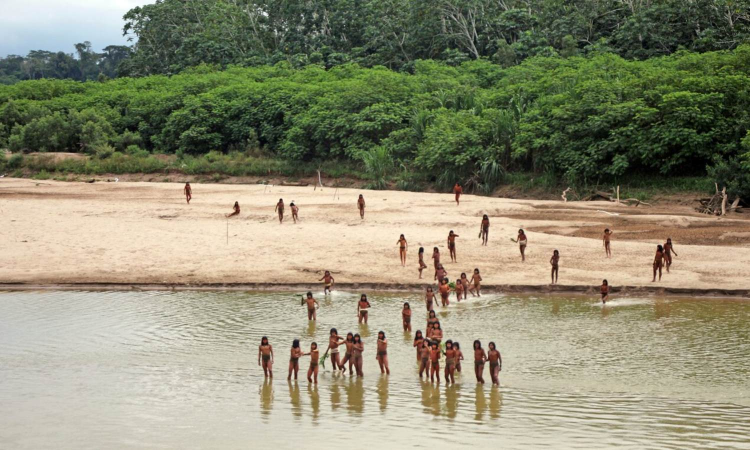Silent genocides: Uncontacted tribes on brink of extinction, warns report
Survival’s research concludes that half of these groups “could be wiped out within 10 years if governments and companies do not act.”

From the depths of Brazil’s Amazon to Indonesia’s rainforests, some of the world’s most isolated peoples are being squeezed by roads, miners, and drug traffickers — a crisis unfolding far from public view or effective state protection.
A new report by Survival International, a London-based Indigenous rights organisation, attempts one of the broadest tallies yet, identifying at least 196 uncontacted Indigenous groups in 10 countries, primarily in the South American nations sharing the Amazon rainforest. Released on Sunday, the report estimates that nearly 65 per cent face threats from logging, about 40 per cent threats from mining, and around 20 per cent from agribusiness.
“These are what I would call silent genocides — there are no TV crews, no journalists. But they are happening, and they’re happening now,” said Fiona Watson, Survival’s research and advocacy director, who has worked on Indigenous rights for more than three decades.
Survival’s research concludes that half of these groups “could be wiped out within 10 years if governments and companies do not act.”
Survival’s research shows that more than 95 per cent of the world’s uncontacted peoples live in the Amazon, with smaller populations in South and Southeast Asia and the Pacific. These communities live by hunting, fishing, and small-scale cultivation, maintaining languages and traditions that predate modern nation-states.
Groups living in voluntary isolation have “minimal to no contact with those outside of their own group,” said Dr Subhra Bhattacharjee, director general of the Forest Stewardship Council and an Indigenous rights expert based in Bonn, Germany. “A simple cold that you and I recover from in a week … they could die of that cold.”
Beyond disease, contact can destroy livelihoods and belief systems. International law requires free, prior and informed consent — known as FPIC — before any activity on Indigenous lands.
“But when you have groups living in voluntary isolation, whom you cannot get close to without risking their lives, you cannot get FPIC,” Bhattacharjee said. “No FPIC means no consent.”
Her organisation follows a strict policy: “No contact, no-go zones,” she said, arguing that if consent cannot be obtained safely, contact should not occur at all.
Across Peru, Brazil, Colombia, Venezuela and Ecuador, drug traffickers and illegal gold miners have moved deep into Indigenous territories. “Any chance encounter runs the risk of transmitting the flu, which can easily wipe out uncontacted people within a year of contact,” she said. “And bows and arrows are no match for guns.”
In Peru, Congress recently rejected a proposal to create the Yavari-Mirim Indigenous Reserve, a move Indigenous federations said leaves isolated groups exposed to loggers and traffickers.
In Brazil, President Luiz Inácio Lula da Silva has sought to rebuild protections weakened under Bolsonaro, boosting budgets and patrols.
And in Ecuador, the Inter-American Court of Human Rights ruled this year that the government failed to protect the Tagaeri and Taromenane peoples who live in voluntary isolation in Yasuni National Park.
Survival International’s report urges a global no-contact policy: legal recognition of uncontacted territories, suspension of mining, oil and agribusiness projects in or near those lands and prosecution of crimes against Indigenous groups.
Watson said logging remains the biggest single threat, but mining is close behind. She pointed to the uncontacted Hongana Manyawa on Indonesia’s Halmahera Island, where nickel for electric-vehicle batteries is being mined.
Associated Press



